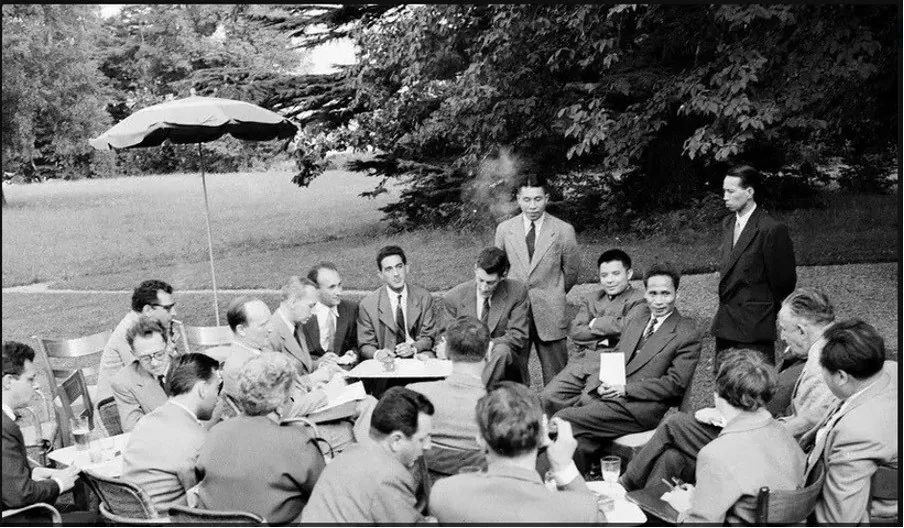
Geneva Accords – A remarkable milestone in Vietnamese diplomacy: Argentinian media
Latest
 |
| A documentary photo on Geneva Accords – a remarkable milestone in Vietnamese diplomacy. (Photo: VNA) |
Argentina’s newspaper "Resumen Latinoamericano" on July 20 published an article praising the significance of the Geneva Accords on the cessation of hostilities in Vietnam in 1954, marking the 70th anniversary of this pivotal historical event.
The article affirmed that along with the preliminary agreements of 1946 and the Paris Agreement of 1973, the Geneva Accords of 1954 stood as a historic milestone in Vietnam's revolutionary diplomacy, bearing distinctive imprint of Ho Chi Minh's diplomatic ideology, style, and diplomatic art. It also serves as vivid evidence of Vietnam's diplomatic doctrine of "bamboo diplomacy".
On May 8, 1954, just one day after the global-shaking victory of Dien Bien Phu, the Geneva Conference commenced discussions on restoring peace in Indochina. Over 75 days and nights of negotiations spanning 31 sessions, including plenary meetings, head-of-delegation meetings, and numerous bilateral and multilateral exchanges, the Geneva Accords on the cessation of hostilities in Vietnam were signed on July 21, 1954.
The article asserted that the accords effectively addressed Indochina's issues in accordance with Vietnam's stance, which aimed to establish peace based on respecting the unity, independence, and democracy of the three regional nations, namely Vietnam, Laos, and Cambodia.
The victory at Dien Bien Phu and the Geneva Accords inspired oppressed nations worldwide to rise for independence and freedom. Subsequently, many countries in Asia, Africa, and Latin America achieved independence through various means. Movements advocating for peace, national sovereignty, democracy, and social progress flourished and expanded significantly.
The newspaper emphasised that between 1954 and 1964, 17 African countries gained independence, and by 1967, France was compelled to grant independence to most of its colonies.
In another article on the same day, "Resumen Latinoamericano" reported on a scientific workshop titled "70 Years of the Geneva Accords on the cessation of hostilities in Vietnam" held by the Ministry of Foreign Affairs of Vietnam, in collaboration with the Ministry of National Defense and the Vietnam Academy of Social Sciences.
It quoted Minister of Foreign Affairs Bui Thanh Son as saying at the workshop that the process of negotiation, signing, and implementation of the Geneva Accords constituted a handbook containing valuable lessons in diplomacy, showcasing the unique characteristics of Vietnam's diplomatic doctrine and foreign policy. These lessons were later inherited, creatively applied, and developed in the negotiation, signing, and implementation of the Paris Agreement in 1973, as well as in the construction, development, and defence of the nation today.
Nguyen Xuan Thang, Member of the Politburo, Director of the Ho Chi Minh National Academy of Politics, and Chairman of the Central Theoretical Council, was quoted as saying that the historic victory at Dien Bien Phu and the success at the Geneva Conference were achievements of the Vietnamese people and the great national unity with support, and assistance of international friends, including progressive French people and colonial countries.















